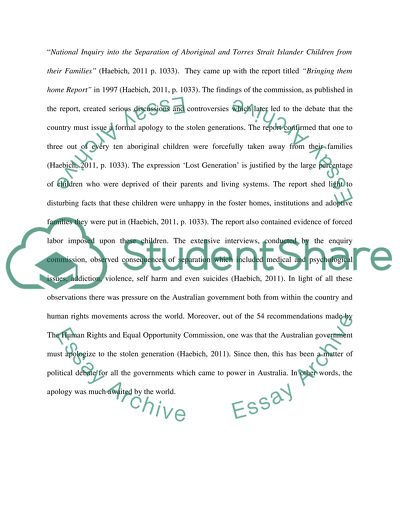Cite this document
(“How Significant Was Kevin Rudd's Apology to the Stolen Generations Essay”, n.d.)
Retrieved from https://studentshare.org/history/1446463-australian-history
Retrieved from https://studentshare.org/history/1446463-australian-history
(How Significant Was Kevin Rudd'S Apology to the Stolen Generations Essay)
https://studentshare.org/history/1446463-australian-history.
https://studentshare.org/history/1446463-australian-history.
“How Significant Was Kevin Rudd'S Apology to the Stolen Generations Essay”, n.d. https://studentshare.org/history/1446463-australian-history.


